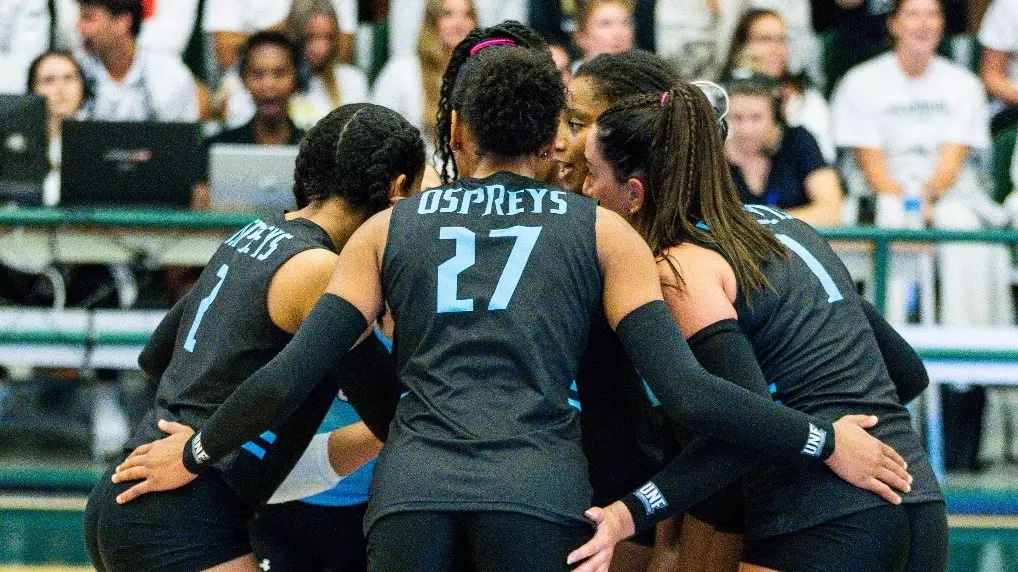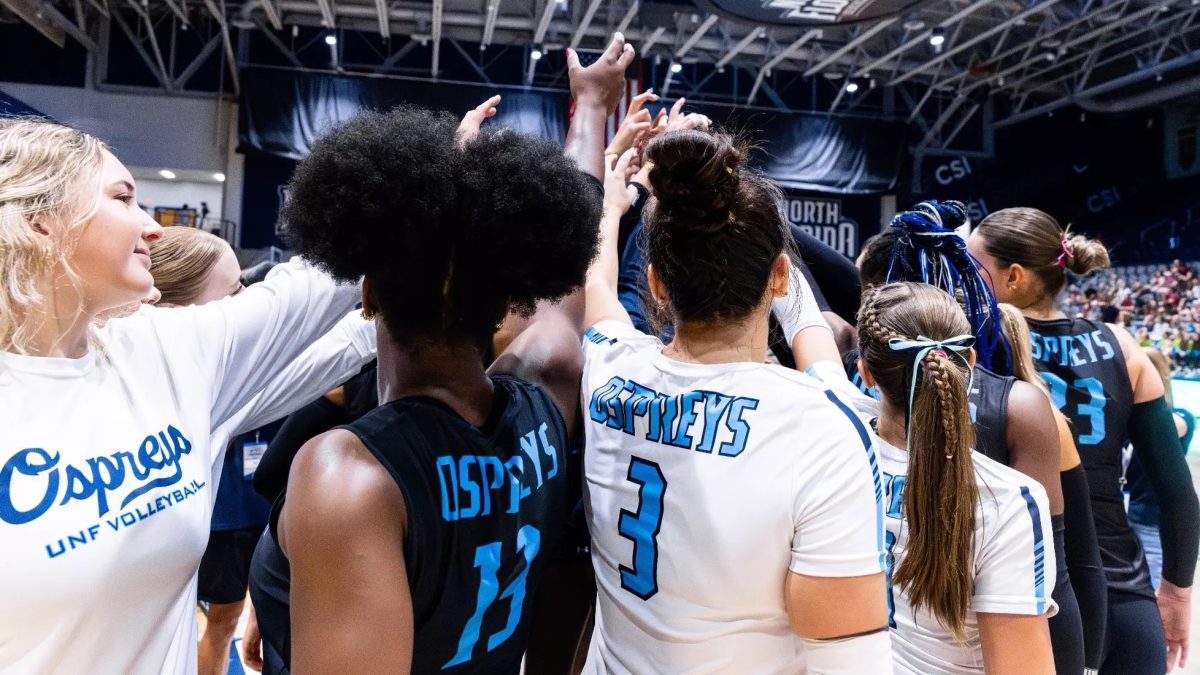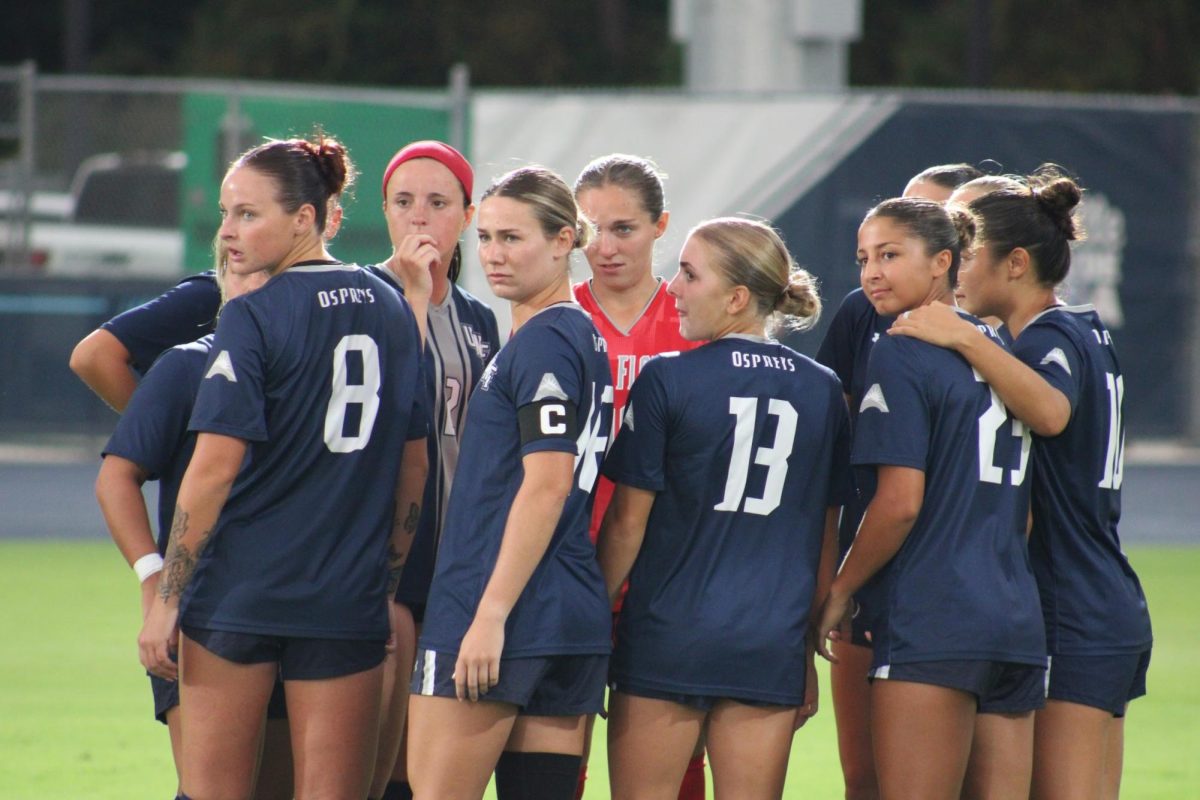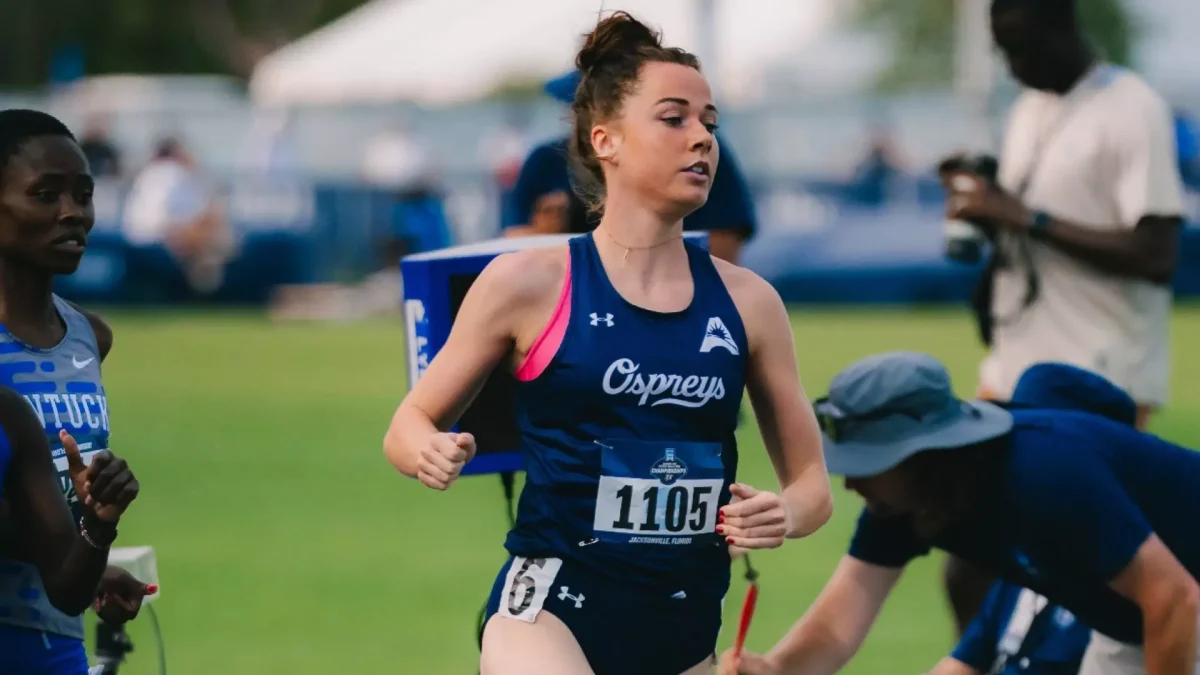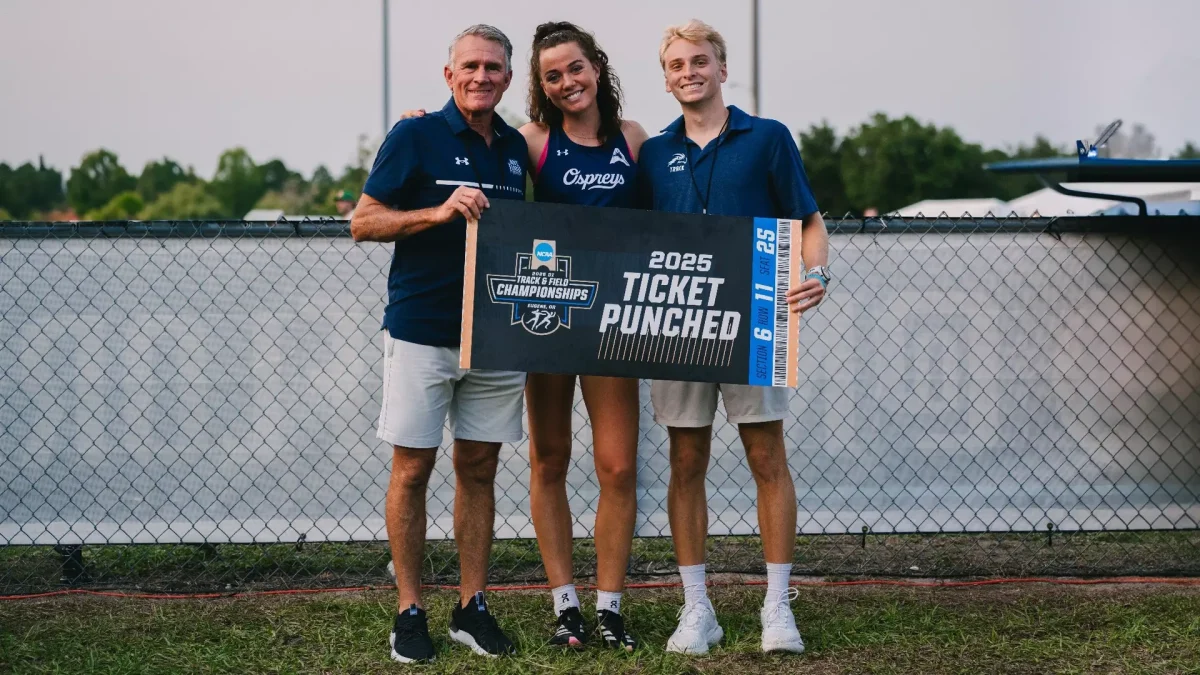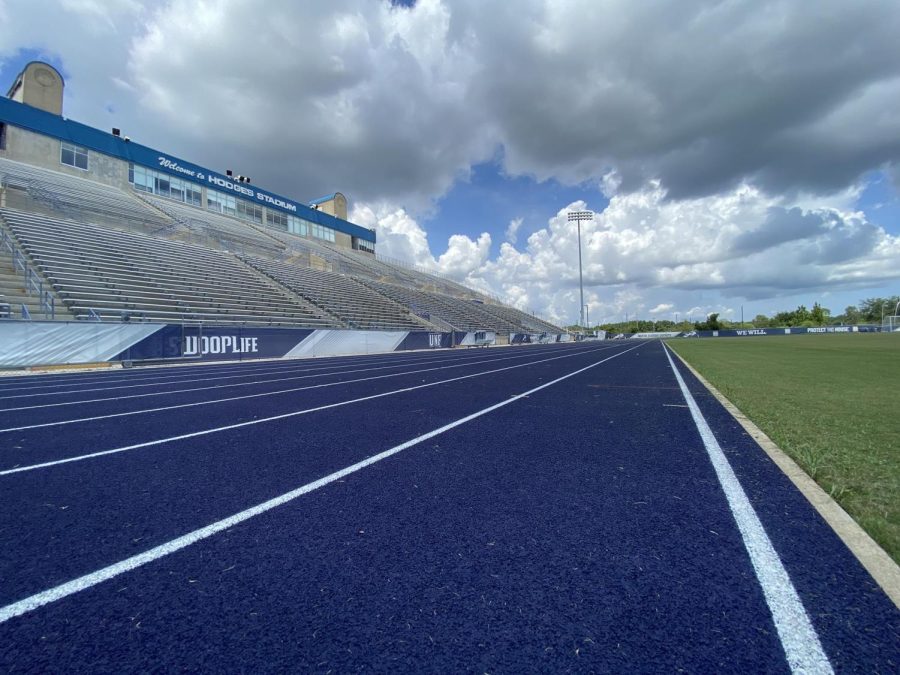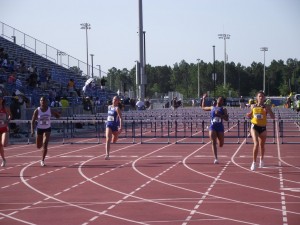
Isiah Young sleeps for eight hours the night before a major track meet.
When he emerges from his dream-filled dormancy, he eats a good breakfast.
Young, an Ole Miss criminal justice junior, is one of many track and field athletes who pay strict attention to their well-being and caloric intake before and during meets.
The Spinnaker asked athletes at the 2012 Outdoor Track and Field Division I East Preliminary Championships, a showcase of the East Coast fastest and strongest college athletes at UNF’s Hodges Stadium, how they prepared for a meet.
Most athletes had similar preparation techniques consisting of carb-loading — consuming lots of carb-laden foods, such as pasta — the day before, light meals on race day, intensive hydration but each with their own twist.
Various types of vitamins help athletes to maintain essential nutrition during strenuous race days when their body is in dire need. The majority of the athletes said multivitamins in a pill form were the easiest way to obtain this fundamental support.
Young said he takes a multivitamin and glucosamine for his joints. His trainer makes him an electrolyte drink with Gatorade and salt to help him recover.
Connor Claflin, a runner from Columbia University, said he takes an iron supplement coupled with a multivitamin every morning during race days.
“The night before the race, I just go with pasta,” he said. “A lot of pasta.”
Another ubiquitous supplement was protein. Some of the track players consumed it via protein bars or in powder form mixed with water or milk, while some preferred to obtain it through traditional meals.
Jeremy Postin, a University of Florida sports management junior, said he consumes whey protein, casein protein and amino acids.
“I just try to get as much protein as possible as fast as possible,” he said.
Sandy Jean-Claude, a University of Central Florida interdisciplinary studies junior, said her team’s nutritionist keeps the team’s diet in check.
Jean-Calude said when she and her teammates go out to eat, they have one serving of bread with water, vegetables, starch and proteins. She said vitamins, potassium, magnesium and joint vitamins were an integral part of their training.
Although most of the athletes had strict pre-race provisions, some runners choose to minimize their groundwork and focus on the race itself.
“I don’t really feed into you have to eat pasta, you have to eat this,” said Paris Simmons, a North Carolina A&T business marketing senior. “Track meets [are] nothing but glorified practice, so don’t switch up routine, do the same thing you do at practice.”
Simmons said hydration and vitamins were an essential part of preparing for races.
Chris Fallon, an Ohio State University operations management and logistics senior, said his diet was pretty relaxed. His team focused on adapting to the intense heat of Florida by hydrating coupled with the help of its favorite supplements.
Fallon said his teammates typically used Cliff bars or energy shots to top everything off.
As track and field athletes at the collegiate level, individual preferences as it pertains to pre-race preparations vary, but the athletes maintain that hydration and balanced eating best prepare them for racing days.




